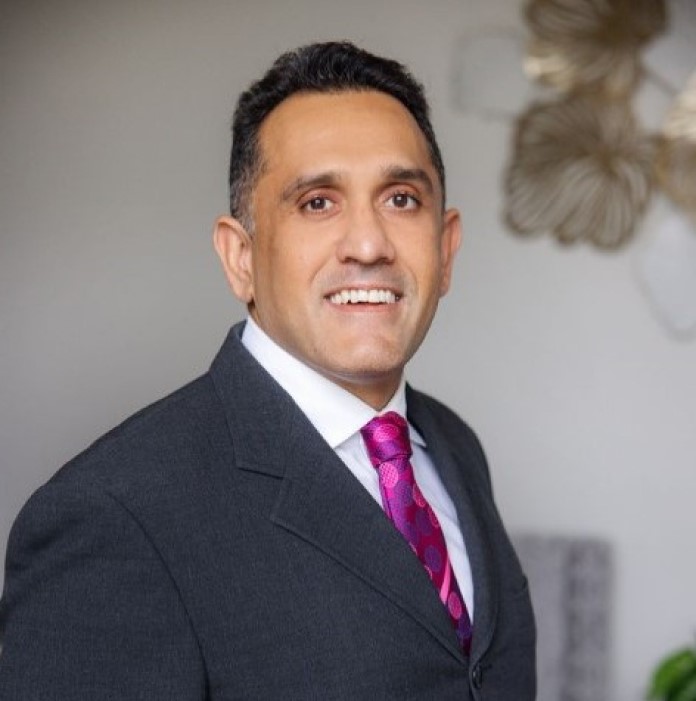
Living with untreated low T can be frustrating, as the symptoms subtly accumulate and interfere with daily activities and personal relationships. Accepting the situation without seeking help can prevent you from enjoying an active life.
Testosterone Replacement Therapy (TRT) offers a promising solution to this problem. Restoring testosterone levels to their optimal range can alleviate the symptoms of testosterone deficiency. Explore how TRT works, what its benefits are and what you can expect from this treatment.
What is testosterone?
Testosterone is a hormone that regulates numerous physiological processes, including muscle mass, bone density and sexual function. If you have testosterone deficiency, you may experience adverse health complications. The symptoms will depend on the severity of your condition, so consult a professional when you believe something could be wrong.
Diagnosing this condition involves a blood test to measure testosterone levels, which should be conducted under the guidance of healthcare professionals from KC Wellness Center.
 What happens to your testosterone level as you age?
What happens to your testosterone level as you age?
As men age, testosterone levels naturally decline. Dr. Alan Kelton of Community Medical Centers states, “Low testosterone is fairly common. Actually, for men who are overweight and in their 40s, one in three men might have it. And certainly, by the time a man is in his 70, about 30% of them will have measurably low testosterone.”
Symptoms of deficient testosterone include reduced energy, low sex drive and mood changes. A normal testosterone level can vary depending on age and individual health conditions. Generally, total testosterone levels between 300 to 1000 nanograms per deciliter (ng/dL) are considered normal for adult males.
The gradual decline in testosterone production can contribute to a range of issues beyond the typical signs of aging. This decline can impact muscle mass, bone density, cognitive function and overall health and well-being. Maintaining optimal testosterone levels through lifestyle changes, such as regular exercise, a balanced diet and stress management, can help mitigate some of these effects.
However, for individuals with clinically low testosterone levels, testosterone replacement therapy (TRT) may be recommended to restore hormonal balance.
Testosterone Replacement Therapy
If you have recently noticed physical changes like a decrease in energy levels, ability to focus and erectile dysfunction (ED), you could be suffering from low T. Although some men who are in this situation decide not to seek help, many treatment options are available that can improve health and sense of well-being.
Bioidentical Hormone Replacement Therapy (BHRT) is a comprehensive and tailored approach to address hormonal imbalance with a particular focus on testosterone for men. It employs hormones designed to mimic the hormones naturally produced by your body. This compatibility significantly reduces the risk of side effects and enhances the effectiveness of the treatment, making it a preferred choice for hormone treatment.
The Endocrine Society states, “Improvement of testosterone levels can improve sexual concerns, bone health, muscle and anemia (low red cells in the blood). Hypogonadism [condition when the body produces little or no hormones] can be treated with the use of doctor-prescribed testosterone replacement therapy. This treatment is safe and can be effective for men who are diagnosed with consistently abnormal low testosterone production and symptoms that are associated with this type of androgen (hormone) deficiency.”
Getting the most from life could be one doctor visit away, but you will need to learn as much as possible about the process to make the most sensible choice for you. The following information will help you understand the benefits of testosterone replacement therapy and what you can gain from using it.
Benefits of Testosterone Therapy
A study published in the Natural Medicine Journal concluded, “Hormone replacement therapy can benefit those with clear symptoms of hormone deficiency, especially older men looking for improved sexual function, muscle mass, mood or cognition. Testosterone replacement therapy (TRT), when used along with appropriate lifestyle changes, can enhance a person’s quality of life.”
Here’s the detailed benefits of TRT:
1. Enhanced Muscle Strength and Physical Performance
Testosterone treatment increases muscle mass and strength, which is crucial for older adults who may experience age-related muscle deterioration. It also improves overall physical health and performance in daily activities, which can prevent injuries and enhance quality of life.
2. Improved Sexual Desire and Erectile Function
A key benefit of TRT is its impact on sexual function, including libido (sexual desire) and erectile function. Testosterone is vital for sexual health, and men with low testosterone often report decreased libido and difficulties achieving or maintaining erections. TRT can effectively restore sexual desire and improve erectile capabilities, which are essential for personal relationships and psychological health.
 3. Increased Energy Levels
3. Increased Energy Levels
Testosterone deficiency is often associated with fatigue and decreased energy levels. Men undergoing TRT frequently report a significant boost in energy, enhancing their ability to engage in daily activities and maintain an active lifestyle, thereby reducing fatigue-related depression and anxiety.
4. Improvements in Cognitive Function
There is growing evidence that testosterone plays a protective role in the brain. Higher testosterone levels are linked to a reduced risk of cognitive decline. TRT can help sharpen mental functions such as memory, processing speed and focus, which are crucial as cognitive abilities can affect quality of life and independence in older age.
5. Mood Stabilization and Psychological Well-being
TRT can positively affect mood and psychological well-being. Low testosterone levels are often linked to mood swings, irritability and depression. Correcting this hormonal imbalance with TRT can improve mood, emotional stability and overall well-being.
6. Support for Bone Density and Cardiovascular Health
Testosterone significantly influences bone mineral density. TRT has been found to increase bone density, which can reduce the risk of fractures and osteoporosis.
7. Potential Reduction in Fat Mass and Improved Metabolism
TRT may help improve body composition by reducing fat mass and increasing lean body mass. Enhanced metabolism, associated with increased muscle mass, can help manage weight and reduce obesity-related complications.
It’s essential to manage testosterone under strict medical supervision to monitor for adverse effects and ensure it is tailored to individual health needs. This careful management helps maximize benefits while minimizing potential risks. Testosterone Replacement Therapy Options: Exploring the Various Forms and Their Applications
Testosterone Replacement Therapy Options: Exploring the Various Forms and Their Applications
When your doctor determines that you have low testosterone, They will help you decide on the best treatment option. Testosterone Replacement Therapy (TRT) offers several administration methods to accommodate different preferences, lifestyles and medical conditions.
Here’s a detailed look at the main options available:
Testosterone Gel
- Application and Absorption: Testosterone gel is typically applied to the upper arms, shoulders or abdomen. The gel is absorbed through the skin, directly entering the bloodstream. This method allows for a steady absorption of testosterone, maintaining more consistent hormone levels throughout the day.
- Convenience and Considerations: The gel form is favored for its ease of use and the ability to control dosage by adjusting the amount applied. However, it requires care to prevent skin-to-skin transfer to other individuals, particularly women and children, which could lead to unintended exposure to testosterone.
Oral Testosterone
- Application and Absorption: Oral testosterone is taken in pill form and absorbed through the digestive system.
- Convenience and Considerations: Oral testosterone is often appreciated for its convenience. However, the effects might fluctuate more throughout the day compared to other methods. It’s essential to discuss potential liver impact and other side effects with a healthcare provider.
Injectable Forms
- Application and Absorption: Testosterone injections are usually administered into the muscles, typically the buttocks, where the hormone is slowly released into the bloodstream. Depending on the formulation, injections can vary in frequency from weekly to bi-weekly or even longer intervals.
- Convenience and Considerations: While injections can provide more stable levels of testosterone over a more extended period, they require visits to a healthcare provider for administration unless the patient is trained to self-administer. This form can lead to peaks and troughs in hormone levels, potentially affecting mood or energy levels.
Each testosterone treatment option comes with its specific protocols and the choice often depends on personal medical history, lifestyle preferences and discussions with healthcare providers. Factors like existing conditions of obstructive sleep apnea, risks of prostate cancer or heart disease need careful consideration when selecting a TRT method.
If one treatment option does not offer the results you had been hoping for, contact your doctor to determine whether you should pursue other solutions.
Are there any side effects associated with BHRT?
While BHRT can minimize side effects due to its natural compatibility with the body’s hormones, individual experiences may vary, and some men might experience minor side effects as their body adjusts to the therapy.
Read more BHRT FAQ here.
BHRT for Men in Kansas City
If having low testosterone is causing you to have less energy and motivation than you would like, you are not alone. A lot of people face this problem and they are getting the help that they need from hormone treatment centers like KC Wellness Center.
As a bioidentical hormone replacement therapy provider in Kansas City, we offer the convenience of easy scheduling and accessibility. Your healthcare support is just a stone’s throw away, allowing for a more personal relationship with your healthcare team.
Reclaim your health and vitality. Contact us so we can help you right away.

Dr. Rahul Kapur, M.D. is a board-certified family medicine physician with a dedicated passion for integrative medicine and a deep knowledge of functional medicine. He was named intern of the year at Wesley Medical Center in Wichita, KS, and has been practicing as a hospitalist for over a decade. He has successfully helped many patients in Kansas City with his specialized IV bags, ketamine therapy, hormone optimization and weight loss therapy methods.

 What happens to your testosterone level as you age?
What happens to your testosterone level as you age? 3. Increased Energy Levels
3. Increased Energy Levels
